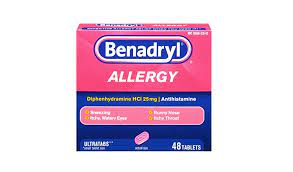You’ve undoubtedly heard about creatine if you’re into bodybuilding or fitness. It’s a well-liked supplement that plenty of people use to increase muscle growth and performance. However, did you know that consuming creatine can also cause constipation? Yes, it’s a typical side effect that certain people encounter. Is it true, though? Does creatine make you constipated?
To find out for sure, we’re going to go into the science behind it in this article. We’ll also go over some advice on how to maintain a happy and healthy digestive tract and assist in avoiding constipation if you use creatine.
What is Creatine?
The best sports performance supplement on the market is creatine. However, some people steer clear of creatine despite its advantages being supported by science because they believe it poses a health risk.
Some people say it makes you gain weight, gives you cramps, and causes problems with your kidneys, liver, or stomach. However, hundreds of studies attest to its efficacy and safety.
Does Creatine Cause Constipation?
As an osmolyte, creatine supplementation may cause problems for some individuals due to undissolved creatine.
By absorbing water from the muscle cells, creatine helps to promote muscular development. Most patients who have this in the stomach complain of constipation, bloating, or diarrhoea. Another complaint mentioned by some might be that creatine gives them headaches.
One of the most frequent adverse effects of creatine is diarrhoea, although some individuals may also have creatine constipation.
All you have to do is remain hydrated to avoid this. For every additional 3-5g of creatine you ingest, it is advised that you up your daily water intake by 0.5 litres. Moreover, you should take creatine with a glass of warm water since it draws water into the muscle cells; it may dissolve more slowly in cold water.
Things to do: Constipation Due to Creatine
Keep Yourself Hydrated:
Maintaining proper hydration is essential to avoiding the constipation that comes with taking creatine. By preventing the possible dehydration effects of creatine and supporting regular bowel movements, drinking lots of water helps maintain optimal bowel function.
Healthy Diet:
A healthy diet should include a variety of fruits, vegetables, whole grains, legumes, and fibre-rich, well-balanced foods. Constipation may be avoided and gut health is enhanced by fibre. By including these items in your diet, you can give your bowel motions the extra size they need to go more smoothly.
Gradually Increase the Intake:
Consider reducing your creatine consumption if your constipation doesn’t go away. Give your body time to adjust by starting with a lesser dose and increasing it gradually. Constipation and other digestive problems may be exacerbated by abrupt and excessive creatine dosages.
Observe How Your Body Reacts:
Observe your body’s reaction to supplementing with creatine. Seek medical advice if your constipation gets worse or lasts longer. To solve digestive concerns, they might provide you with customised guidance and suggest different kinds of creatine or changes to your supplementation regimen.
Can Creatine Cause Weight Gain?
In terms of increasing body fat, creatine does not directly induce weight gain; instead, it may temporarily increase water weight. People who begin using creatine supplements may see an increase in water retention in their muscles, which increases cell volume. Although it may lead to a minor rise in total body weight, this water retention does not always indicate fat accumulation. Since the extra water weight is mostly distributed throughout the muscles, better hydration is encouraged, which may improve exercise performance. Assessing the effect of creatine supplementation on body weight requires making the distinction between fat increase and water weight.
How Weight Gain Is Caused by Water Retention?
Water retention occurs when the body’s tissues hold onto more fluid than is required, leading to weight gain. Numerous factors, including a high-salt diet, hormonal fluctuations, and certain medical conditions, can lead to water retention. When the body maintains more salt than it can efficiently eliminate, it hangs onto water to maintain equilibrium. Furthermore, changes in hormones, particularly throughout the menstrual cycle, may impact the amount of fluid retained. The body’s ability to regulate fluid balance can be hampered by heart failure and renal disease, among other conditions and medications.
The excess water is retained in various body tissues, increasing the body’s overall weight. It’s critical to recognise that this weight gain is temporary and unrelated to the accumulation of body fat. Common techniques for reducing water retention include consuming less salt, drinking enough water, eating a balanced diet, and attending to any underlying medical issues.
The disparity between muscle mass and fat accumulation
A body’s composition may be divided into two categories: muscle mass and fat buildup. The body stores more calories as adipose tissue, which leads to fat accumulation and a rise in weight.
This excess fat, which is present throughout the body, is associated with several health risks. On the other hand, muscle mass refers to the overall quantity of muscle tissue in the body and is mostly influenced by resistance training and protein intake. While muscle and fat both contribute to overall body weight, they are not the same. Whereas fat is more voluminous and less dense, giving the impression of being softer and larger, muscle is denser and seems more defined and compact.
Muscle is also a crucial part of metabolism since it requires more energy to maintain than fat. Because of this, sustaining and growing muscle mass through regular exercise and a balanced diet is essential for overall health and can assist in achieving a more optimal body composition.
Conclusion: Does creatine make you constipated?
In conclusion, the best sports performance supplement on the market is creatine. Despite the advantages of creatine supported by science, some individuals steer clear of it out of concern for their health. Like any product to increase muscle growth, excessive creatine levels carry a little risk of some adverse effects. Though constipation is the most frequent adverse effect, research has determined that it is perfectly safe.
Also Read : Is It ok to Drink Gatorade Zero Everyday



